Mathematical Modeling
Most popular
 Status: PreviewPreviewS
Status: PreviewPreviewSStanford University
Course
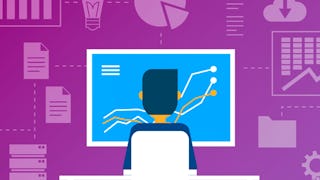 Status: Free TrialFree TrialU
Status: Free TrialFree TrialUUniversity of Pennsylvania
Specialization
 Status: Free TrialFree TrialD
Status: Free TrialFree TrialDDuke University
Specialization
 Status: Free TrialFree TrialU
Status: Free TrialFree TrialUUniversity of Pennsylvania
Specialization
Trending now
 Status: Free TrialFree TrialU
Status: Free TrialFree TrialUUniversity of Pennsylvania
Specialization
 Status: Free TrialFree TrialD
Status: Free TrialFree TrialDDeepLearning.AI
Specialization
 Status: Free TrialFree TrialU
Status: Free TrialFree TrialUUniversity of Colorado Boulder
Specialization
 Status: Free TrialFree TrialU
Status: Free TrialFree TrialUUniversity of Pennsylvania
Specialization
New releases
 Status: PreviewPreviewC
Status: PreviewPreviewCCoursera Instructor Network
Course
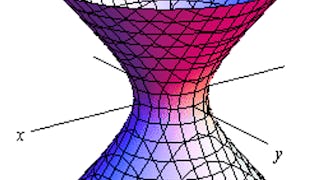 Status: Free TrialFree TrialJ
Status: Free TrialFree TrialJJohns Hopkins University
Specialization
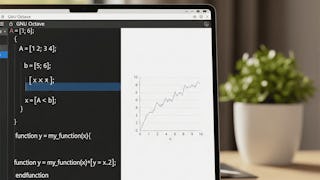 Status: Free TrialFree Trial
Status: Free TrialFree TrialCourse
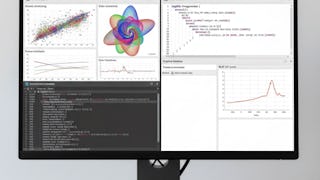 Status: Free TrialFree Trial
Status: Free TrialFree TrialSpecialization
Filter by
SubjectRequired *
LanguageRequired *
The language used throughout the course, in both instruction and assessments.
Learning ProductRequired *
LevelRequired *
DurationRequired *
SubtitlesRequired *
EducatorRequired *
Results for "mathematical modeling"
 Status: Free TrialFree TrialJ
Status: Free TrialFree TrialJJohns Hopkins University
Skills you'll gain: Data Analysis, Applied Mathematics, Mathematical Modeling, Analytical Skills, Statistics, Systems Of Measurement, Correlation Analysis, Regression Analysis
4.8·Rating, 4.8 out of 5 stars93 reviewsBeginner · Course · 1 - 4 Weeks
 Status: Free TrialFree TrialU
Status: Free TrialFree TrialUUniversity of Pennsylvania
Skills you'll gain: Mathematical Modeling, Statistical Modeling, Regression Analysis, Business Modeling, Financial Modeling, Business Mathematics, Markov Model, Probability, Predictive Analytics, Process Optimization, Risk Management, Statistics, Probability Distribution, Simulation and Simulation Software, Forecasting
4.6·Rating, 4.6 out of 5 stars9.3K reviewsMixed · Course · 1 - 4 Weeks
 Status: Free TrialFree TrialD
Status: Free TrialFree TrialDDeepLearning.AI
Skills you'll gain: Descriptive Statistics, Bayesian Statistics, Statistical Hypothesis Testing, Probability & Statistics, Sampling (Statistics), Probability Distribution, Linear Algebra, Statistical Inference, A/B Testing, Statistical Analysis, Applied Mathematics, NumPy, Probability, Calculus, Dimensionality Reduction, Numerical Analysis, Mathematical Modeling, Machine Learning, Machine Learning Methods, Jupyter
4.6·Rating, 4.6 out of 5 stars2.9K reviewsIntermediate · Specialization · 1 - 3 Months
 Status: Free TrialFree TrialJ
Status: Free TrialFree TrialJJohns Hopkins University
Skills you'll gain: Calculus, Applied Mathematics, Data Modeling, Estimation, Graphing, Mathematical Modeling, Algebra, Cost Estimation, Mathematical Software, Engineering Calculations, Linear Algebra, Trigonometry, Operations Research, Data Analysis, Advanced Mathematics, Derivatives, Mathematical Theory & Analysis, Geometry
4.8·Rating, 4.8 out of 5 stars366 reviewsIntermediate · Specialization · 3 - 6 Months
 Status: Free TrialFree TrialU
Status: Free TrialFree TrialUUniversity of Pennsylvania
Skills you'll gain: Return On Investment, Financial Reporting, Financial Acumen, Financial Data, Capital Budgeting, Financial Statements, Financial Modeling, Mathematical Modeling, Statistical Modeling, Regression Analysis, Business Modeling, Income Statement, Risk Analysis, Cash Flows, Financial Analysis, Business Mathematics, Corporate Finance, Spreadsheet Software, Google Sheets, Microsoft Excel
4.5·Rating, 4.5 out of 5 stars17K reviewsBeginner · Specialization · 3 - 6 Months
 U
UUniversity of Colorado Boulder
Skills you'll gain: Control Systems, Process Control, Mathematical Modeling, Engineering Analysis, Differential Equations, Systems Analysis, Electrical Systems, Mechanics, Systems Thinking, Applied Mathematics, Performance Testing, Basic Electrical Systems
Build toward a degree
4.7·Rating, 4.7 out of 5 stars91 reviewsIntermediate · Course · 1 - 3 Months
What brings you to Coursera today?
 Status: Free TrialFree TrialJ
Status: Free TrialFree TrialJJohns Hopkins University
Skills you'll gain: Calculus, Applied Mathematics, Trigonometry, Advanced Mathematics, Mathematical Modeling, Algebra, Derivatives, Geometry
4.8·Rating, 4.8 out of 5 stars106 reviewsIntermediate · Course · 1 - 3 Months
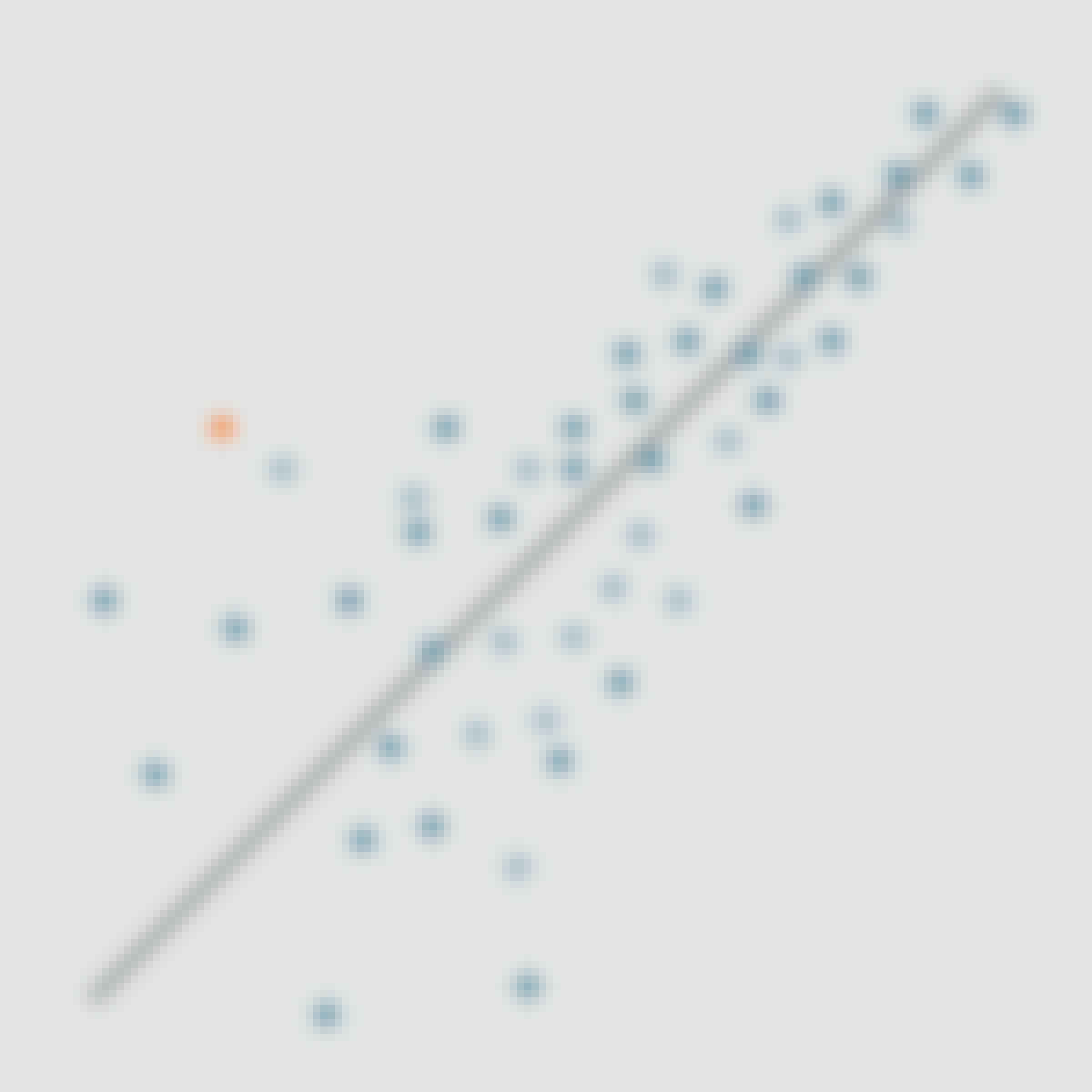 Status: Free TrialFree TrialD
Status: Free TrialFree TrialDDuke University
Skills you'll gain: Regression Analysis, R (Software), Statistical Analysis, R Programming, Statistical Modeling, Statistical Inference, Correlation Analysis, Data Analysis, Statistical Methods, Exploratory Data Analysis, Mathematical Modeling, Statistics, Predictive Modeling
4.8·Rating, 4.8 out of 5 stars1.8K reviewsBeginner · Course · 1 - 4 Weeks
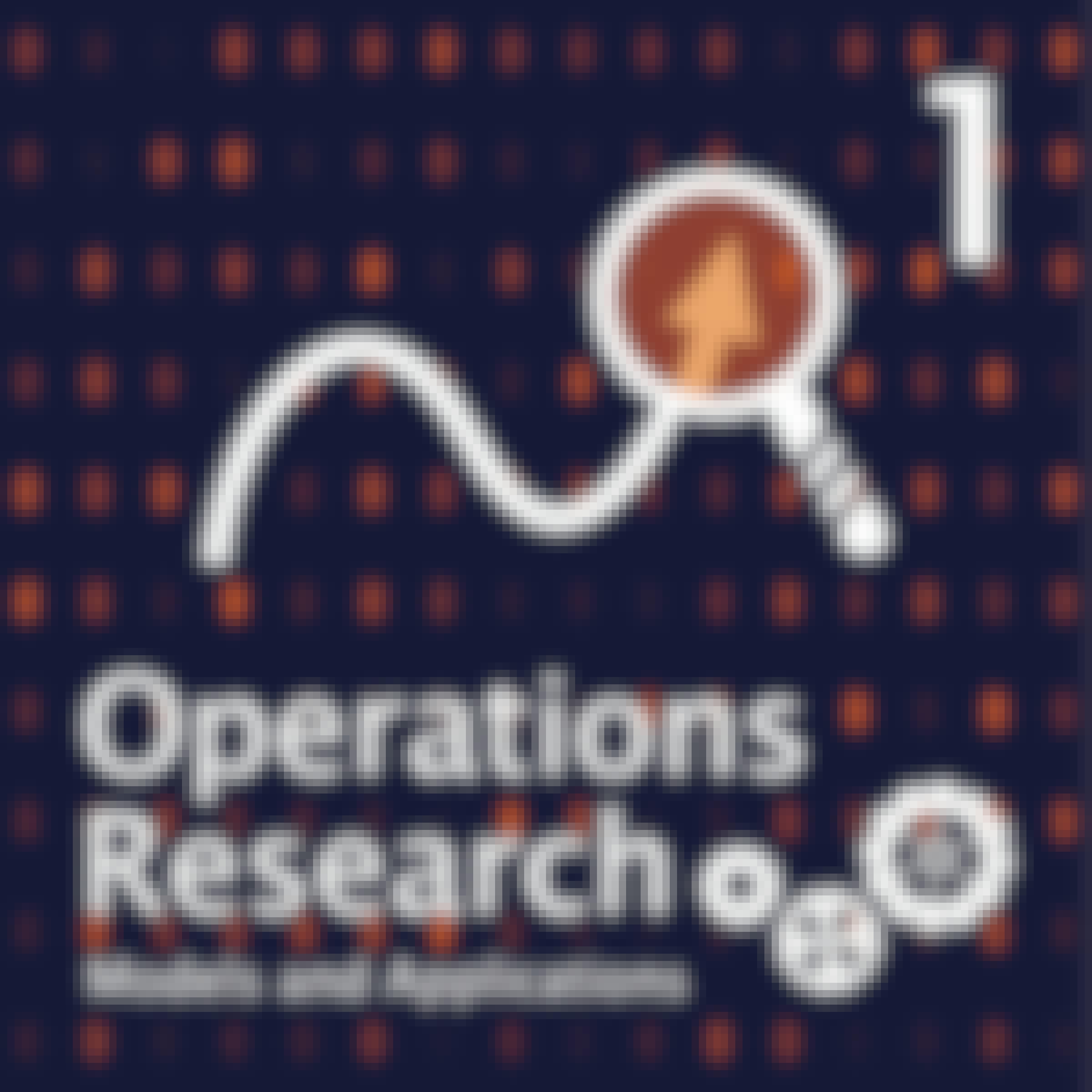 N
NNational Taiwan University
Skills you'll gain: Operations Research, Mathematical Modeling, Process Optimization, Business Mathematics, Applied Mathematics, Business Modeling, Industrial Engineering, Business Operations, Operations Management, Resource Allocation, Business Analytics, Production Planning, Inventory Management System, Case Studies, Microsoft Excel, Scheduling, Linear Algebra, Decision Making, Portfolio Management, Algorithms
4.8·Rating, 4.8 out of 5 stars562 reviewsBeginner · Course · 1 - 3 Months
 Status: PreviewPreviewM
Status: PreviewPreviewMMathWorks
Skills you'll gain: Simulation and Simulation Software, Control Systems, Model Based Systems Engineering, Engineering Design Process, Mathematical Modeling, Engineering Analysis, Systems Analysis, Systems Engineering, Test Case, Systems Design, Performance Tuning, Matlab
4.8·Rating, 4.8 out of 5 stars43 reviewsBeginner · Course · 1 - 4 Weeks
 Status: PreviewPreviewS
Status: PreviewPreviewSStanford University
Skills you'll gain: Game Theory, Strategic Decision-Making, Mathematical Modeling, Graph Theory, Bayesian Statistics, Behavioral Economics, Probability, Economics, Problem Solving, Algorithms
4.6·Rating, 4.6 out of 5 stars4.9K reviewsBeginner · Course · 1 - 3 Months
 Status: Free TrialFree TrialJ
Status: Free TrialFree TrialJJohns Hopkins University
Skills you'll gain: Calculus, Integral Calculus, Numerical Analysis, Advanced Mathematics, Mathematical Theory & Analysis, Mathematical Modeling, Data Analysis, Linear Algebra, Probability, Geometry, Applied Mathematics, Visualization (Computer Graphics), Mechanics, Engineering Calculations, Graphing, Spatial Data Analysis, Physics
4.7·Rating, 4.7 out of 5 stars130 reviewsIntermediate · Specialization · 3 - 6 Months







